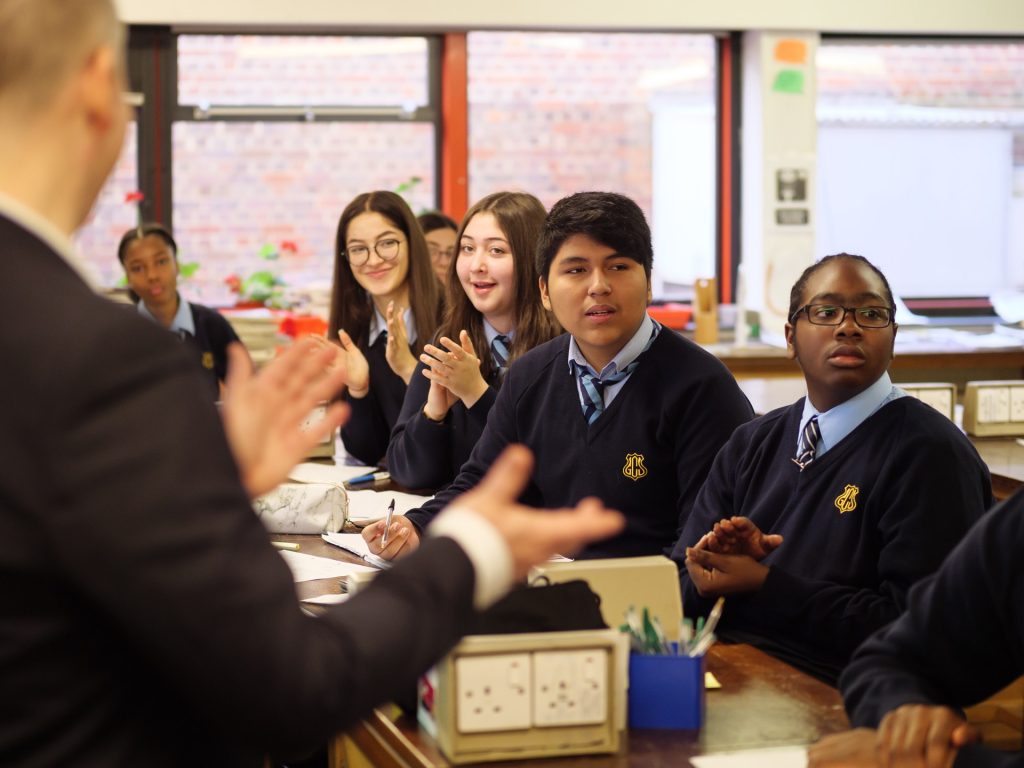Since Russia’s attack on Ukraine, which began 24 February, more than 4 million people have fled the country, and 6.5 million have been internally displaced. Ukrainians have been met with public and political support and sympathy in neighbouring countries. At the policy level, the EU has granted those fleeing the war temporary protection for at least one year, extendable up to three years. This is a remarkable Read the rest of this entry »
The aims of the curriculum should be the fount from which everything else in school life should flow
By Blog Editor, IOE Digital, on 22 April 2022
 22 April 2022
22 April 2022
By John White
What are England’s schools for? Many parents and other citizens may well assume the authorities have a good answer to this. But have they?
Well-known philosophers from both sides of the Atlantic interested in education – from Harvard, Columbia, Chicago and Illinois as well as from UCL IOE – are broadly agreed that a worthwhile education has three or four key aims: self-maintenance through work, personal fulfilment, citizenship and moral concern. Their discussions of each aim differ in detail but there is consensus both that there are complex interconnections among the aims and that expounding what each involves painstaking elucidation. Philip Kitcher, for instance, an eminent philosopher from Columbia University in New York, devotes just over half his new book The Main Enterprise of the World: Rethinking Education (2022 ) to what its aims should be.
These 201 pages are mainly about the four mentioned above.
Compare this to the 41 words on the aims of the English National Curriculum: Read the rest of this entry »
The limitations of bricolage: Ofsted’s Curriculum Research Review for Languages
By Blog Editor, IOE Digital, on 19 April 2022

JESHOOTS-com / Pixabay
19 April 2022
By Norbert Pachler and Elspeth Broady
During 2021 and 2022, OFSTED has published a number of curriculum research reviews seemingly with the aim of identifying factors contributing to high quality school curricula and how subjects can best be taught with the help of research findings.
Whilst attempts to leverage research findings to underpin, inform and improve subject pedagogy must be viewed as laudable and desirable, the curriculum research reviews raise a number of important questions and issues, certainly if the recent furore over the maths review is anything to go by (see e.g. Schools Week but see also the journal Routes for a discussion of the review for geography). While controversy is seemingly more intense in some subjects than others, common problematic features emerge from the reviews in general: Read the rest of this entry »
Refugee reception in the shadow of Russia’s war in Ukraine – perspectives from Scandinavia and the UK
By Blog Editor, IOE Digital, on 8 April 2022

Image: hbrh / Adobe Stock
8 April 2022
By Mette Louise Berg, Line Grüner, Anders Neergaard, Andrea Verdasco, and Silke Zschomler
Drawing on their ongoing research, Mette Louise Berg, Line Grüner, Anders Neergaard, Andrea Verdasco, and Silke Zschomler discuss refugee reception policies in Denmark, Sweden, and the UK, and the obstacles involved in refugee social inclusion and integration in local communities. This post first appeared on the UCL Europe Blog.
ITT Market Review: excellent science teaching needs skills in overcoming misconceptions
By Blog Editor, IOE Digital, on 5 April 2022
 5 April 2022
5 April 2022
The National Curriculum states that the purpose of science education is to provide a foundation ‘for understanding the world’ and that it is essential for ‘the world’s future prosperity’. It can safely be argued that these aims, whatever is thought of them, cannot be met within the confines of a school classroom or lab, but they do highlight the importance that is placed on students experiencing a really high-quality science education. This in turn can only be achieved through exceptional teaching.
We have a very clear vision of what that teaching should look like, from the crucial point of view of the pupils. Exceptional science teachers are those: Read the rest of this entry »
IOE at 120: Seeking the best way to educate the ‘whole child’, 1922–1932
By Blog Editor, IOE Digital, on 30 March 2022
 30 March 2022
30 March 2022
This blog is the third in a series of 12 exploring each decade in IOE’s history in the context of the education and society of the times. Find out more about our 120th anniversary celebrations on our website, and follow us on Twitter, Instagram, Facebook and LinkedIn to keep up with everything that’s happening.
By 1922, Prime Minister Lloyd George’s declaration that the men would be coming home to a ‘land fit for heroes’ rang hollow. The initial euphoria that gripped the nation in the aftermath of the First World War quickly dissipated as the enormity of the destructive capacity of the war in human and economic terms was realised. Some 750,000 British men were killed or wounded, the number of widows rose to c1.6 million, and just over 730,000 children lost their fathers. Families suffered extreme poverty as unemployment averaged 64 percent.
Britain’s relatively undereducated citizenry, in comparison with her European and International competitors, was seen as a growing liability in terms of the nation’s financial health and the future of the empire. With the passing of the People’s Representation Act in 1918 (and later the Reform Act in 1928), which extended franchise, the need for an educated citizenry became more imperative. To meet the demands of a new, modern world, the 1918 Education (Fisher) Act embodied the notion of creating a responsible and informed citizen. Though raising the school leaving age to 14 was achieved, the Act failed to meet its other targets when the Geddes ‘axe’ drastically reduced the Read the rest of this entry »
How pandemic closures prompted children to change their perspectives about school
By Blog Editor, IOE Digital, on 28 March 2022
 28 March 2022
28 March 2022
How have pandemic-related school closures affected the well-being of children? Some research evidence has emerged, but few educational studies have included face-to-face interviews with children, such as ours has. Our ‘Children’s Life Histories in Primary Schools’ involved 63 interviews with 23 children considered to be ‘lower-attaining’, when they were aged 9-10, concerning their experiences of school closures.
Not surprisingly, the children’s testimonies showed that their wellbeing was diminished by the closure of schools, as it had hindered their opportunities to play, socialise and learn, leading to feelings of sadness, loneliness and boredom. But extended school closures also made them realise Read the rest of this entry »
Language teaching and learning beyond vocabulary and grammar: our success stories
By Blog Editor, IOE Digital, on 15 March 2022
 15 March 2022
15 March 2022
By Zhu Hua, Caroline Conlon, Camilla Smith, Fotini Diamantidaki and Áine McAllister
The strong reactions from the language teaching and learning community to the Government’s French, German and Spanish GCSE subject content review are hardly surprising. If the review’s intention was to make the subject ‘accessible’ and to motivate students, then making a few tweaks to words, themes and topics, question types and grammar will not do the job.
Learning another language is not simply about putting words and sentences together; it is about communicating ideas, feelings and experiences; connecting with people and cultures and broadening horizons. Language curriculum, assessment and pedagogy need to focus on developing intercultural competence.
So what has worked well in classrooms? How do we create space for cultural exploration and exchange of perspectives? And what role does Read the rest of this entry »
Does it matter if you don’t get a C (or 4) grade in GCSE mathematics?
By Blog Editor, IOE Digital, on 10 March 2022
10 March 2022
To Year 11s, GCSEs can seem the be-all and end-all of life. Having worked hard throughout secondary school, many young people put themselves under great pressure to do well in these exams.
While many will get the grades they hope for, some will inevitably end up feeling disappointed. This is likely to include those who fail to achieve a C/4 grade in a key subject such as mathematics, given the emphasis placed upon this high-stakes grade threshold within our education system.
But what impact does missing a C/4 grade in GCSE mathematics really have? When young people receive their GCSE results, are they right to feel despondent if they have missed this grade? Or does it not really matter that much, in the grand scheme of things?
This blog – drawing upon evidence from my recently released paper – takes a closer look. Read the rest of this entry »
Subject specialism is at the heart of teaching and Citizenship Education is at the heart of a whole school approach
By Blog Editor, IOE Digital, on 3 March 2022

3 March 2022
In a time of global conflict, raised concerns about climate change and political disharmony, Citizenship Education is more important than ever. As a subject, it also ensures that young people can have discrete teaching within a whole school approach, bringing together what The 1998 Advisory Group on Citizenship guided by Sir Bernard Crick originally proposed. All subjects should be involved in whole school approaches, but to do that we need subject specialists.
The government’s December 2021 response to its ITT market review is not just a risk for one ITE institution over another, or one subject over Read the rest of this entry »
Quick thoughts on the emerging humanitarian crisis in Ukraine and among its neighbours
By Blog Editor, IOE Digital, on 28 February 2022
By Brad Blitz
As Putin’s assault on Ukraine continues, hundreds of thousands of people will seek safety in Poland, Romania, Slovakia, and Hungary. Only Poland has some recent experience of receiving mass flows of refugees, which was not handled well. The outpouring of support and sympathy from Ukraine’s neighbours is most welcome, but there are urgent matters to consider if European states and their partners are to manage this impending humanitarian crisis.
 Close
Close



